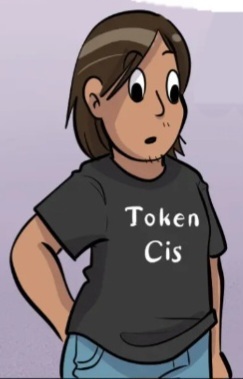I’ve had a few events so far where the discussion/feedback part had 1-2 white guys doing longgggg monologues about something unrelated to the main topic. Last time had some stoner guy ranting about the confusing service at airports here (the event was about Gaza). Before that it was some boomer guy trying to explain Madonna to the non-white teens in our group (the event was about trans rights). Sometimes it’s just two white guys monologuing back and forth. It’s super counter productive and cringe.
I’m just thinking of a hard rule. Like “if you’re a white guy, you’re welcome, but please try to listen more and keep unrelated monologues to a minimum.”
For the record, I am a white dude.
Be firm. Confront them, publicly if doing so is constructive. Learn to deprioritize civility and prioritize equity and progress. This just has to be met with strength. Procedural changes don’t matter if they’re the ones operating them or if nobody enforces them.
In my local org we have chaired meetings and a timer.
At the start we quickly decide which member will be the chair. Doesn’t really matter who. If someone wants to say something, they have to raise their hand and the chair has to call on them before they can talk. Then they have 3 minutes to say their piece. The chair keeps track of the timer and also decides who speaks next, so if two people are dominating the discussion by going back and forth, the chair can choose to wait a moment to see if anybody who hasn’t spoken yet wants to raise their hand. We do this for like 40 minutes and then go into informal discussion once it feels like we’ve run out of things to say.
At first I found this rigid and uncomfortable, but as soon as I attended a different org’s meeting where they didn’t have this policy, I wouldn’t have it any other way. (Somebody talked about veganism for 45 minutes with long personal anecdotes, and everyone was too polite to tell him to shut up. And he wasn’t even vegan.)
tell them to shut the fuck up and get off the stage bc their time is up
I read “org” as “orgy”.

Meeting minutes, perhaps?
Maybe do a briefing on what exactly you’re trying to accomplish at any given meeting and lay down that we only have so much time to meet? Like, I highly doubt they’re being intentionally disruptive so just making them aware of that fact might do something.
I was in an organization previously that had different hand signals for the audience to give a speaker if they were droning on too long. You’d put your arm across the top of your head if they were going on a tangent and raise an arm with a limp hand if they were beating a dead horse.
I took a course on social organizing. And every time a question like this was asked (how do we convince x…) I would try and come up with a clever way of doing it. Then the instructor would provide several examples of what you might say and they were all direct.
So here’s what you could do:
Tell them to shut the fuck up and let someone else talk.
I’ll add to this: Trying to be nice to people who are disruptive in an organization, or people you dislike for some reason, will undermine the cause/organizing/institution etc. It is far better to personally deal with issues rather than let them fester and lead to resentment.
That doesn’t mean kick someone out (necessarily), but confront them and do the uncomfortable thing. We have power through numbers, which means all our efforts are necessarily social.
It will be hard, it will suck, you might even need to go home and have a cry afterwards. But you, your organization, and your comrades will form stronger bonds, and experience far more wins than are otherwise possible.
One of two methods, depending on the meeting, the constituency, etc.:
- Progressive stack - A queue of speakers is kept, but people who haven’t spoken yet are prioritized, and non-cis/-het/-white/-male people may also be bumped in priority.
- Rounds - Go around the room and give everyone in turn a chance to speak (or pass). This can be great for people who are normally hesitant to speak up or put themselves on the queue, while offering the no-pressure chance to pass if they really don’t want to speak.
Plus sometimes a person who volunteers to do temperature checks, remind people if they are taking inordinate amounts of time or are simply repeating stuff that’s already been said, etc. Depending on the dynamics of the meeting (e.g. when most people form a well-knit group who trusts each other to do well) this might be handled collectively instead of with people in the particular role.
“Keep your comments on topic”
Ya I need to do this, I’m just too fucking polite.
Do they deserve your politeness?
I honestly don’t know. Usually they’re lib to left, but their politics always at least slightly problematic. Maybe they don’t deserve my politeness.
No shit they don’t deserve your politeness, they keep derailing discussions, that’s problematic enough on its own.
there’s nothing impolite about forcing these people to respect the time of others
A phrase I heard constantly growing up in Norway was “tidstyv”. In English, according to Wiktionary, one can say “time thief” or “time burglar” or “time bandit”, and yet I have never in my life heard someone say that, that I can remember. The phrase apparently originates in the 1973 Michael Ende novel Momo, in the original German it was Zeit-Dieb.
“time theft” is exactly it. when you take into account how many people are potentially being held captive these men are wasting collective hours of time that could be better spent doing literally anything else. from that perspective it’s genuinely rude to everyone else not to shut them up.
If they’re acting out of white privilege and being racist etc. they probably shouldn’t be a member to begin with or if it’s not something too serious they should get a warning.
If they’re taking a position on an issue but doing it in a way that is objectively counter productive to the topic at hand it should be pointed out so that they get back on the relevant topic, this isn’t a race thing it can apply generally. Issues like this also hint at a bad org structure which doesn’t have clear procedures, each discussion should have some people democratically chosen to be “in charge” of the procedure and guide it while intervening whenever there is need to.
Never pass on your skill and experience to a new or less skillful worker.
Thank you comrade boomers in sabotaging western industry by not retiring, and thank you comrade porky for both refusing to train anyone and your insistence on perfection from anyone seeking a job.
Wow that’s good
Hexbear shit-posters:


I’m in this picture
and I don’t like it
If they’re acting out of white privilege and being racist etc. they probably shouldn’t be a member to begin with or if it’s not something too serious they should get a warning.
The latter. The former wouldn’t be tolerated at all.
On an organisational level this is a product of insufficient structure.
You can work on addressing matters of culture and individual attitudes but that’s a long-game thing and it may not yield results or it may take a long time to yield results at all.
To address this on an organisational level, you want a chairperson and that chairperson to be an assertive moderator.
An agenda is also important as it will introduce and frame the topic for discussion, giving the chair an opportunity to pull people up if they’re way off topic.
Establishing approximate timeframes for each item on the agenda is also important as it puts a degree of pressure on people to be succinct instead of treating the meeting as an opportunity to yap.
A chair will be able to use these timeframes to rein in people who are talking too much - if there is 15 minutes to discuss an item on the agenda and one person has taken up 5 minutes of airspace, the chair can move the discussion on to another person.
It’s a tricky balance to try and strike and it depends on relationships and awareness and communication ability to navigate this stuff effectively and with sensitivity but as general advice if the chair has to continually drag one or two people back to the topic at hand as well as cutting them off because they’re taking up all the time for discussion in meetings then there’s a fair chance that these people will start developing an awareness of their behaviour and, if things go well, they’ll start making improvements without any escalations or the need for other, more direct interventions.
Very true. I will try to implement this in the future.
I just read all this as stern words from the angry Lenin in your profile pic

Find that CIA/FBI operations manual on how to disrupt orgs by using infiltrators and turncoats.
Print out and highlight the parts that talk about the specific actions of, nitpicking on specific but insignificant details and what is essentially filibustering.
Pass them around.
passive-aggressive fedjacketing doesn’t sound like a good idea
Its not fedjacketing to say that certain behaviours are counter productive and that feds do them on purpose. If you keep doing counter productive things despite being told they are counter productive you are as useful to the org as any fed.
But doing it passive-aggressively in response to someone doing something you don’t like is.
They can be passive aggressive or aggressive aggressive about it.
If a person is doing a thing that is dodgy and nobody wants to directly confront them about it, maybe laying the groundwork for the offending person to do some self reflection will make it easier when somebody pushes back in a more direct manner.
Being an oxygen thief isn’t a good idea either.
deleted by creator
This is why I, a white man, do not participate in any organizing and just grill goddammit.
You’re welcome for my solidarity comrades.
Funny joke but consider:
thesis: I should organize and lead because the world needs a white savior
antithesis: I should grill because the world is tired of my kkkrakkka shit
synthesis: I should organize in a non-leadership role because the world is tired of my kkkrakkka shit
I should organize in a non-leadership role because the world is tired of my kkkrakkka shit
That suits me just fine tbh. I don’t want the stress and responsibilities of leadership.
Ultimate synthesis: I should just grill for the org, since that’s the only thing I’m competent enough to be trusted with, kkkrackkker or not.
How are you with mushroom caps?
Pretty good
 I’ll have 2!
I’ll have 2!
The revolution will need people will all sorts of talent, grillers included

Did you just apply Fichte’s method to white habitus
This is fuckin genius comrade
long off topic monologues
the sad thing is this is indistinguishable from something a wrecker or a cop would do, but I could also see it being completely sincere behavior. Perhaps institute some kind of time limit.
Isn’t this literally the cia wrecker sabotage guide instructions?
Don’t you have any officers, old guards or just well respected members to explain this to them? They kind of just seem like yappers and if they don’t stop after being asked politely then they need to be reprimanded and turned away if they fail to stop. If they’re good faith comrades then a good faith discussion will stop it. If they aren’t then you rooted out the problem that was sort of sabotaging your meetings anyway and they needed to go.




















